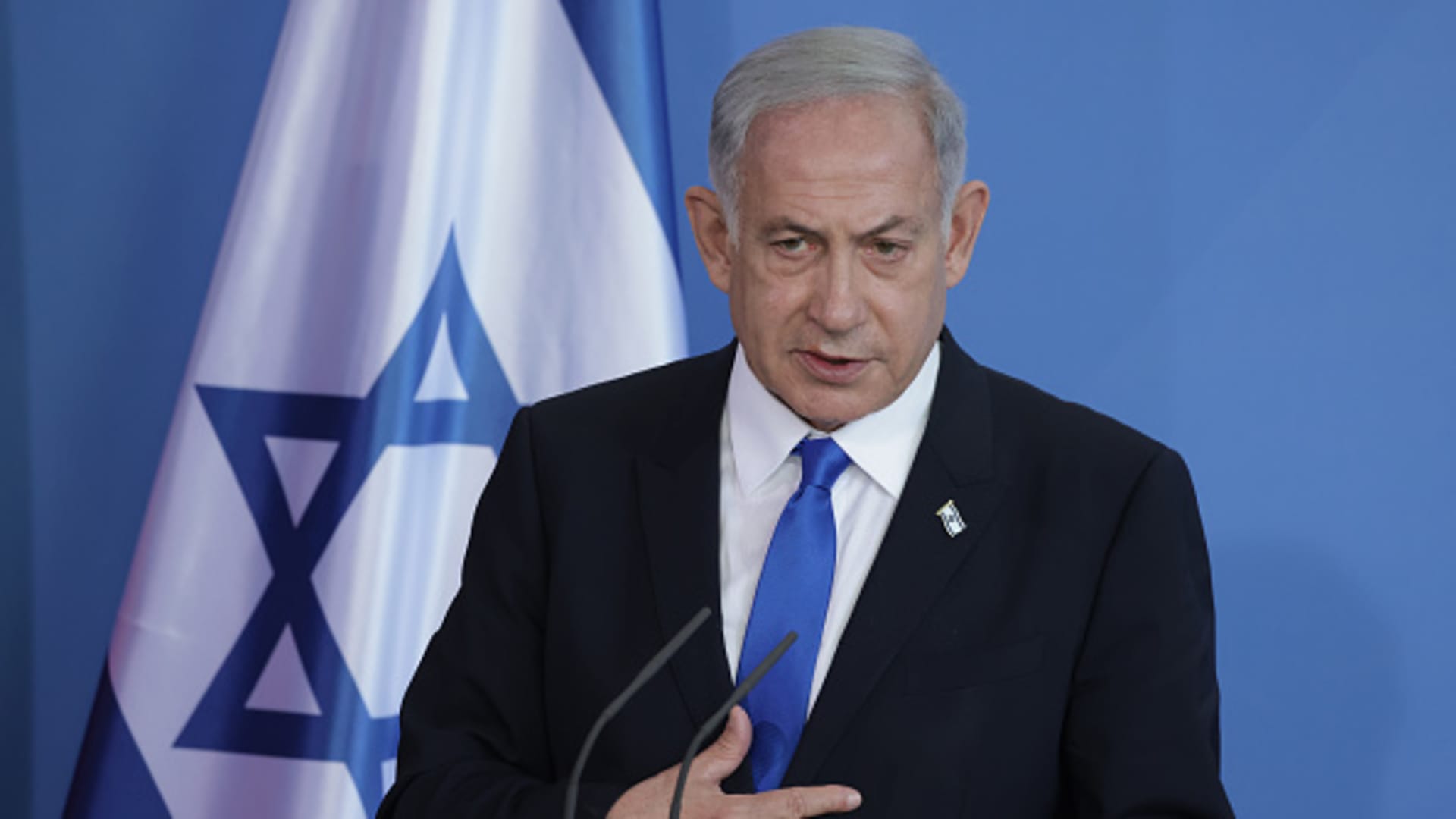Israeli Prime Minister Benjamin Netanyahu expressed concern in an interview published Thursday that Israeli-made defense systems, including the U.S.-funded Iron Dome, could reach Iran if diverted to Ukraine.
in a Wall Street Journal video interviewNetanyahu suggested that if the systems used by the Ukrainian military fell into Russian hands, the country’s close ties to Iran, a U.S.-sanctioned country, could lead to them ending up under Tehran’s control. He did not specify how Iran would acquire the equipment.
Moscow used the Iranian-made “Shahed” drone, renamed “Geran,” in the Ukraine war. Tehran has said in the past that it did not provide these weapons to Russia to counter Kiev.
“We are also concerned that the systems we supply to Ukraine could fall into Iranian hands and could be reverse-engineered, and we could find ourselves facing Israeli systems against Israel,” Netanyahu told the newspaper.
“It’s not a theoretical … threat because Western systems, like anti-tank systems, have gone through that journey and we now find them on our border with (the Iran-backed group) Hezbollah.”
Ukraine has repeatedly stressed its urgent need for air defense systems and ammunition to fend off aerial attacks from Russia’s ongoing offensive. U.S. Senators Chris Van Hollen and Lindsey Graham have urged Israel in recent days to remove its veto over the transfer of the Iron Dome air defense and missile interception system to Kiev.
“To be clear, we are not asking Israel to transfer Iron Dome, which is critical to its own security, but only to allow the United States to transfer our own batteries to help the people of Ukraine,” the senators said. In a joint statement on June 23.
In a scathing statement from FacebookThe Ukrainian embassy in Israel said on June 25 that “the current Israeli government has chosen the path of close cooperation with the Russian Federation,” citing Israel’s diplomatic contacts with Moscow and “the fact that Israel provides little humanitarian aid to Ukraine.”
Further statement on June 28The Ukrainian embassy has issued an appeal to Israel, referring to the recent Russian shelling of a restaurant in the eastern city of Kramatorsk that killed 12 people.
“The Russians are murdering our citizens – and Israel still refuses to sell defense equipment to Ukraine!” it said. “If Israel, known for its defense capabilities, will provide Ukraine with the necessary protective equipment – lives will be saved.”
Asked about the comments, Netanyahu said Israel was not neutral in the conflict and emphasized its sympathy and stance towards Ukraine, but it was subject to “restrictions” and national security concerns.
“With or without sympathy, and whatever steps we take, my first interest is to keep the only Jewish state safe,” he said.
Israel’s stance may also be linked to a reluctance to jeopardize its progress against Tehran in neighboring Syria.
“Israel’s reluctance to condemn Russia’s actions was above all a strategic decision to avoid jeopardizing an informal agreement with Moscow that enabled Israel to counter Iranian influence in Syria,” The Atlantic Council stated in late April that.
“Russia has been one of the dominant powers in Syria since its military intervention began in 2015. Russia controls the Syrian skies and generally does not restrict Israeli fighter jets from striking Iranian proxies. With this in mind, Israel does not want to risk alienating the Kremlin .”
In fact, Netanyahu admitted in a Wall Street Journal interview that “our pilots flew alongside Russian pilots over Syria to thwart Iran’s attempt to create a second Hezbollah front in Syria.”
In March, Saudi Arabia and Tehran ended a seven-year rift by rebuilding relations brokered by China, with Israel finding itself increasingly isolated in its opposition to Iran. The U.S. and Iran renegotiated a potential prisoner swap earlier this month, Multiple sources told NBC NewsQuestions have arisen about whether the two governments will explore a potential informal agreement to keep Iran from accelerating its nuclear program.
Formal talks between Washington and Iran to sign a variant of the JCPOA nuclear deal, brokered by the European Union and other signatories, have yielded no breakthrough.
Referring to the possibility of a new U.S. deal, Netanyahu said, “Any deal with Iran that doesn’t affect its nuclear infrastructure and basically dismantle it doesn’t do much good.”
The U.S. State Department, Iran and Russia’s foreign ministries did not immediately respond to CNBC’s request for comment on the possibility that systems deployed to support Ukraine could end up under Iranian control.


